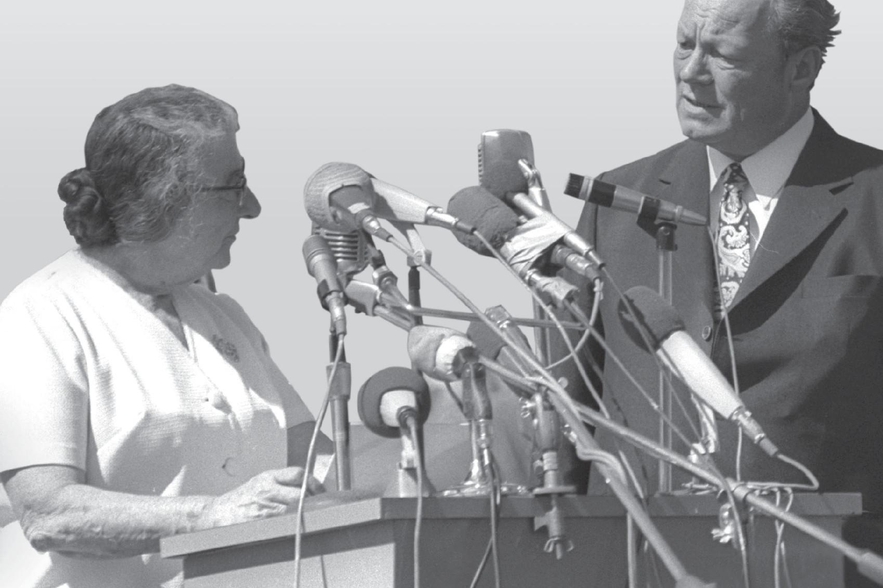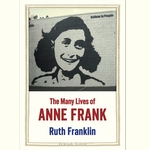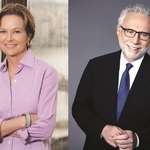West Germany and Israel: Carole Fink in conversation with David Marwell

- Date/Time
- –
- Venue
- The Taub Center for Israel Studies at NYU (map)
14A Washington Mews
New York, NY 10003 - Format
- In person
- Admissions
- General: Free
- Cosponsors
By the late 1960s, West Germany and Israel were moving in almost opposite diplomatic directions in a political environment dominated by the Cold War. The Federal Republic launched ambitious policies to reconcile with its Iron Curtain neighbors, expand its influence in the Arab world, and promote West European interests vis-à-vis the United States. By contrast, Israel, unable to obtain peace with the Arabs after its 1967 military victory and threatened by Palestinian terrorism, became increasingly dependent upon the United States, estranged from the USSR and Western Europe, and isolated from the Third World. Nonetheless, the two countries remained connected by shared security concerns, personal bonds, and recurrent evocations of the German-Jewish past. Drawing upon newly-available sources covering the first decade of the countries' formal diplomatic ties, Carole Fink reveals the underlying issues that shaped these two countries' fraught relationship and sets their foreign and domestic policies in a global context.
Carole Fink received her B.A. degree from Bard College and her M.A. and Ph.D. degrees from Yale Univeristy, and was a former faculty member at the University of North Carolina at Wilmington, the State University of New York at Binghampton, Canisius College, Albertus Magnus College, and Connecticut College.
In addition to West Germany and Israel: Foreign Relations, Domestic Politics, and the Cold War, 1965-1974 (2019), professor Fink's recent publications include:Cold War: An International History (2014, 2nd ed. 2017) and Writing 20th Century International History: Explorations and Examples (2017). She is also the author of Defending the Rights of Others: The Great Powers, the Jews, and International Minority Protection, 1878-1938 (2004) and The Genoa Conference: European Diplomacy 1921-1922 (1984, new ed. 1993), both of which were awarded the George Louis Beer Prize of the American Historical Association for the best work that year in European International History, as well as of Marc Bloch: A Life in History (1989), the first biography of France’s soldier-patriot-historian, which has been translated into six languages.
David G. Marwell is a historian, Trustee of Leo Baeck Institute, and the Director Emeritus of the Museum of Jewish Heritage – A Living Memorial to the Holocaust in New York City. He received a Ph.D. in Modern European History from the State University of New York at Binghamton. Prior to his work at the U.S. Holocaust Memorial Museum in Washington, D.C. from 1997 to 2000, Marwell was Director of the Berlin Document Center in Berlin and then Executive Director of the JFK Assassination Records Review Board. He also served as Chief of Investigative Research for the U.S. Department of Justice, Office of Special Investigations. In that capacity, Marwell was responsible for conducting historical and forensic research in support of Justice Department prosecution of Nazi war criminals, including Klaus Barbie and Josef Mengele. He has also served as an expert witness and consultant to the governments of Canada and Australia on several war crimes prosecutions, and was a member of the Interagency Working Group for Nazi War Criminal Documents. His new book about Josef Mengele, <i>Mengele: Unmasking the Angel of Death</i>, is forthcoming from W. W. Norton & Company in 2020.


